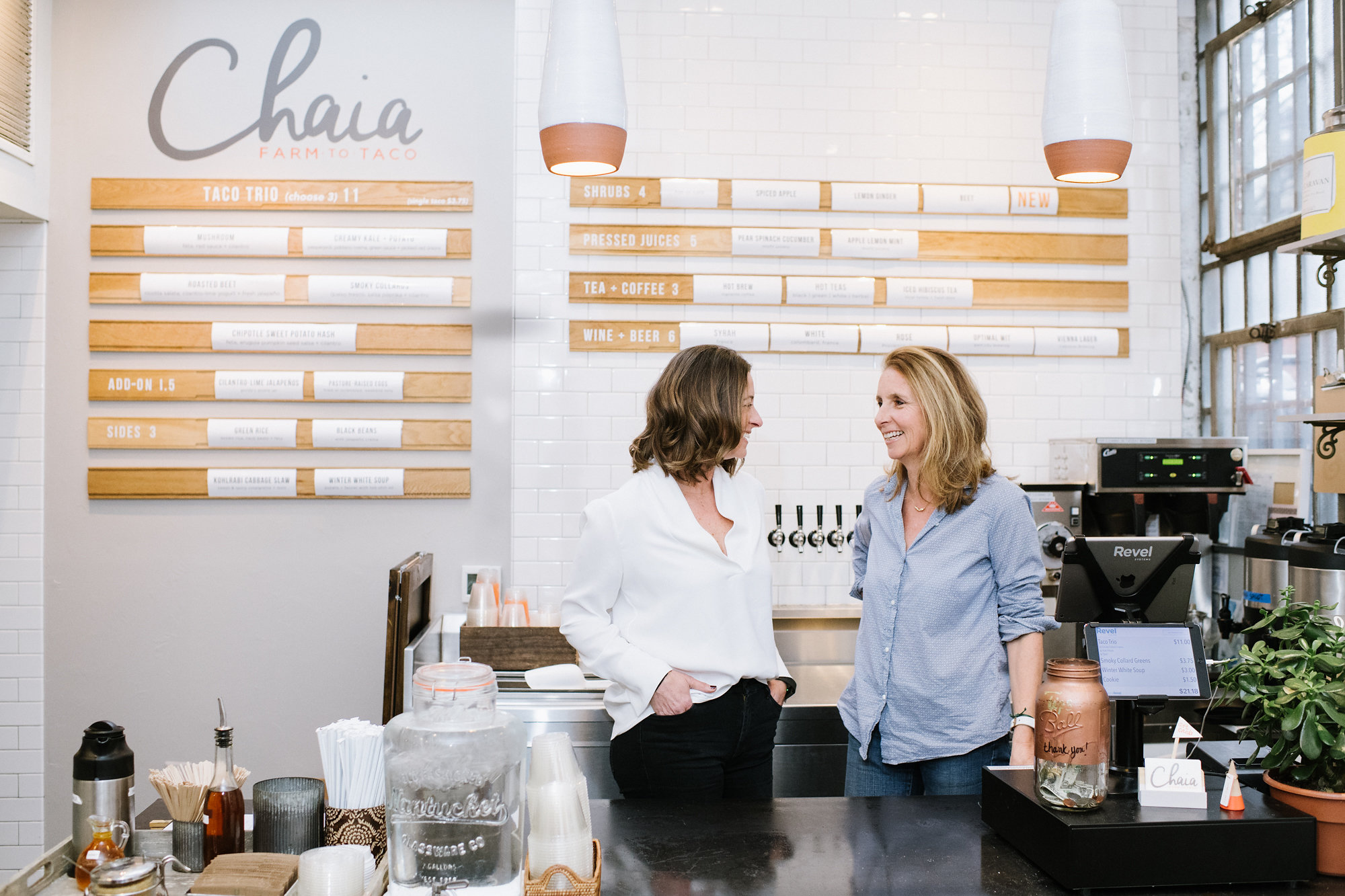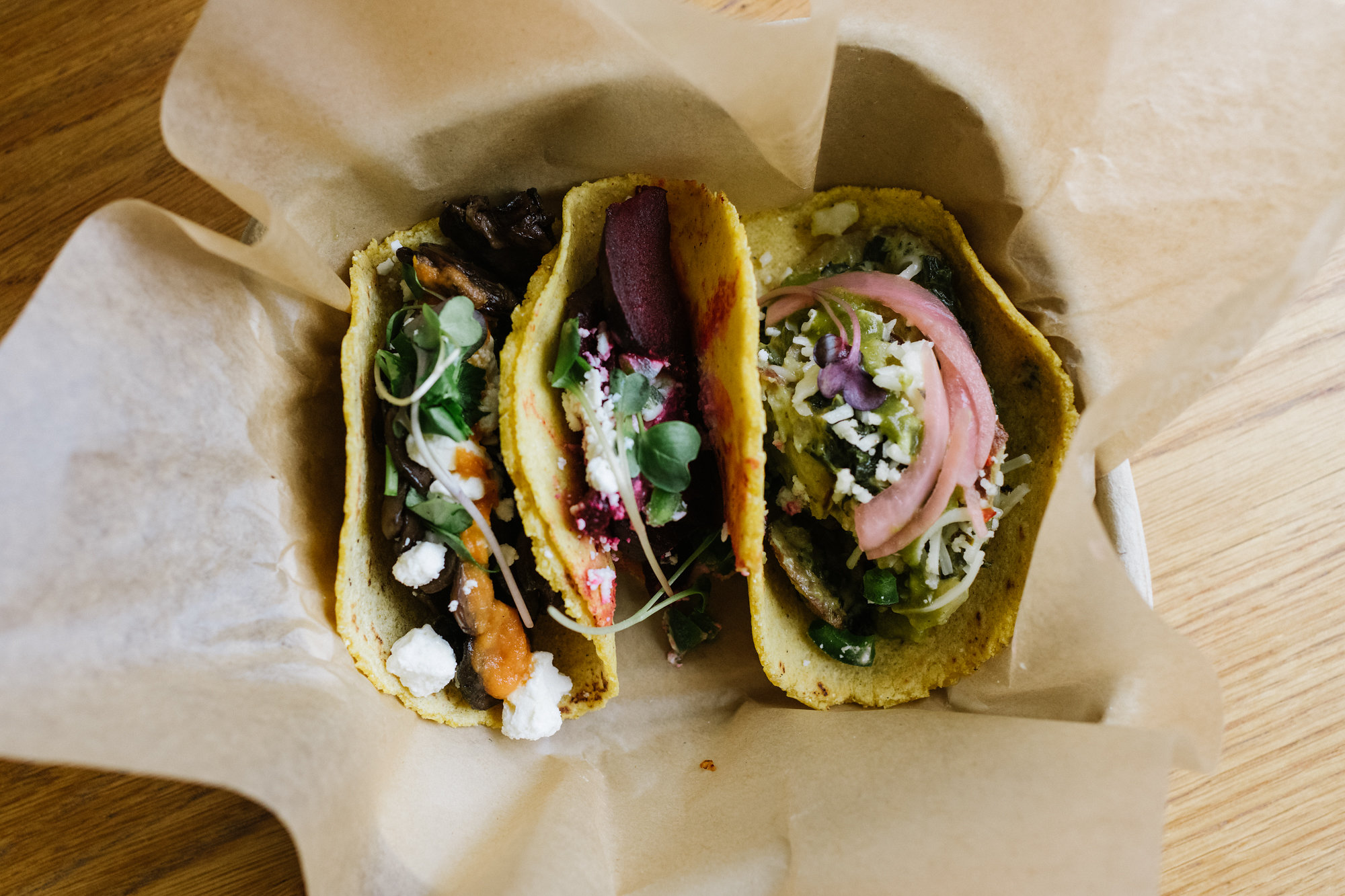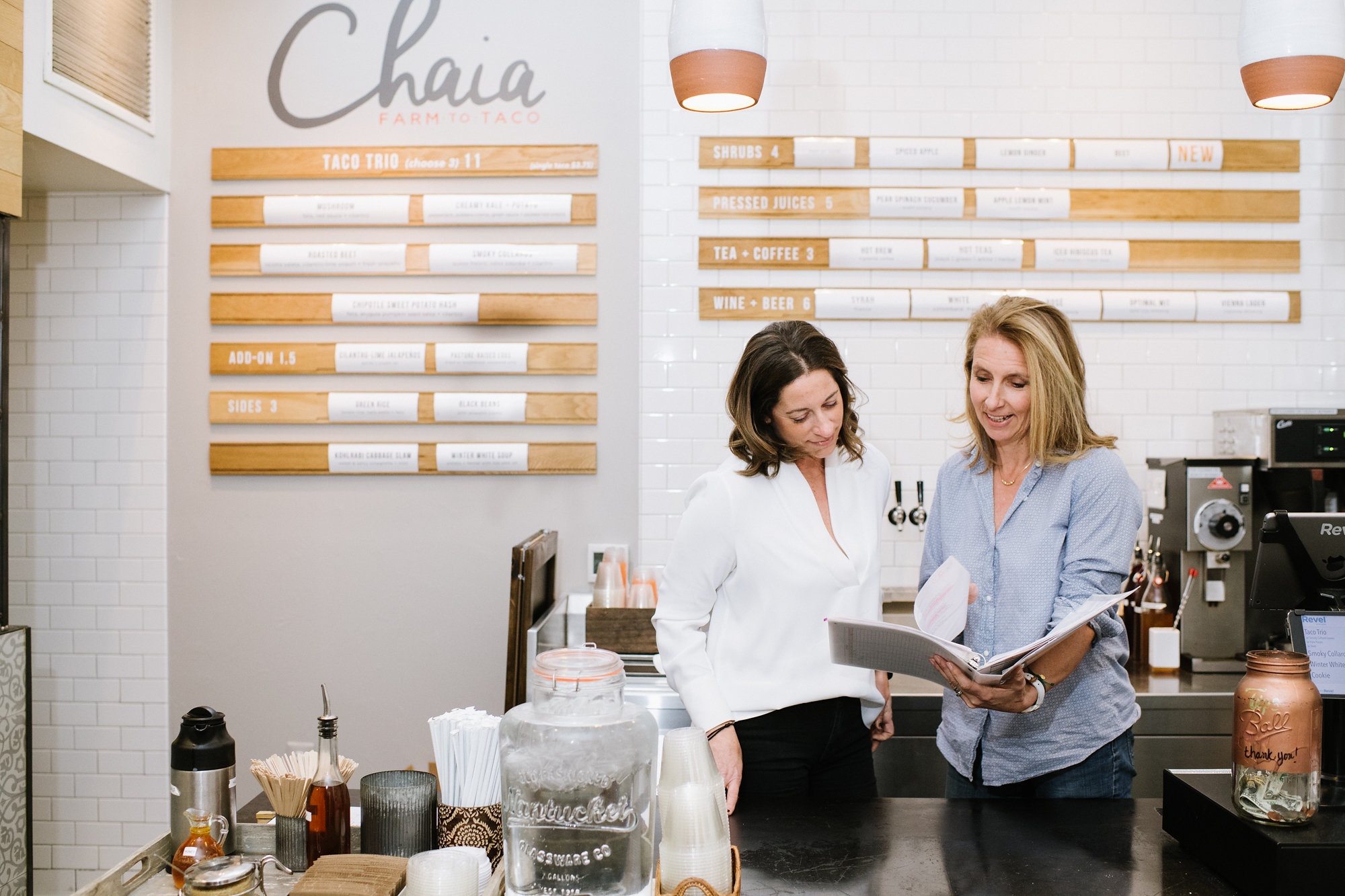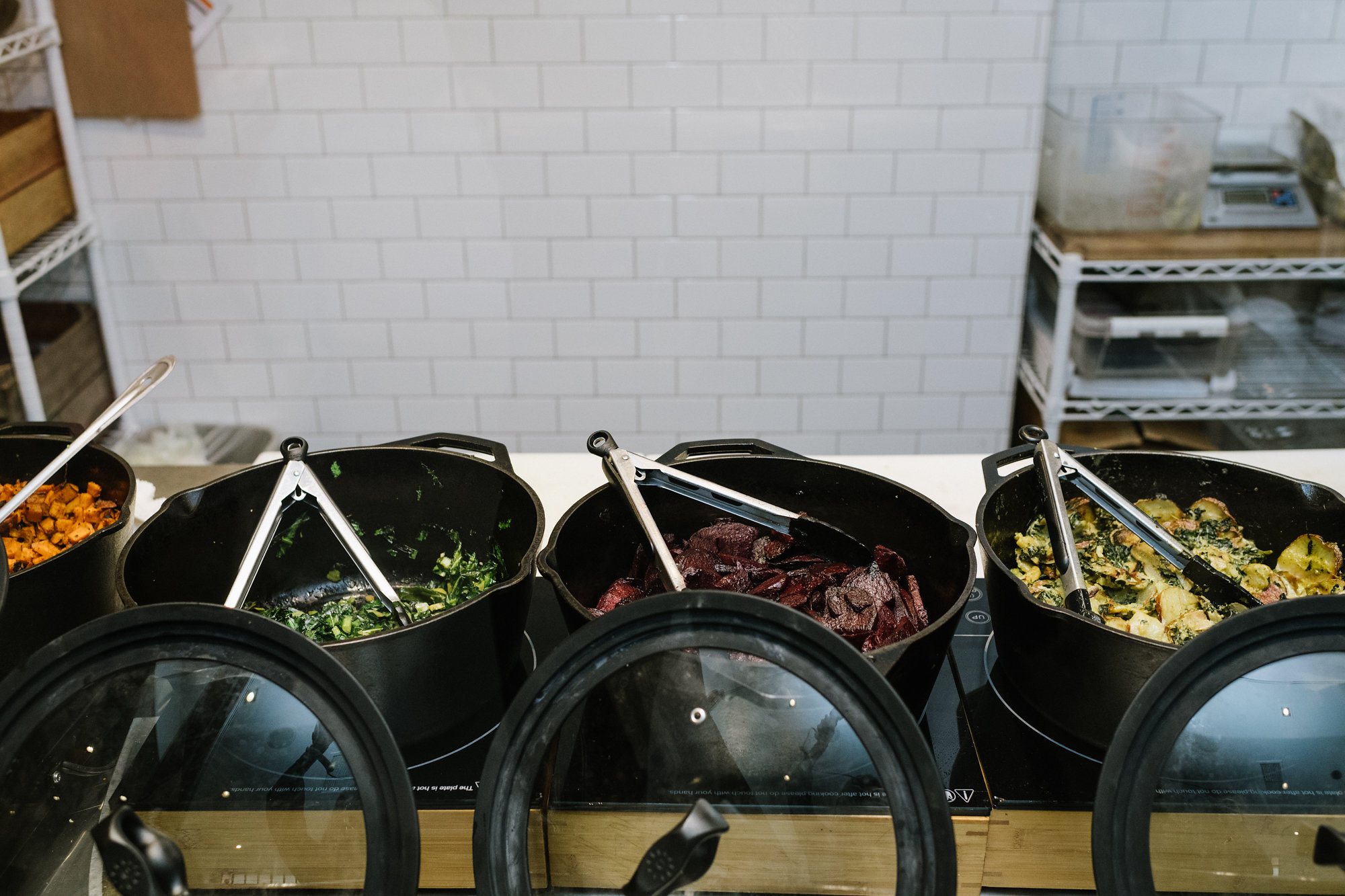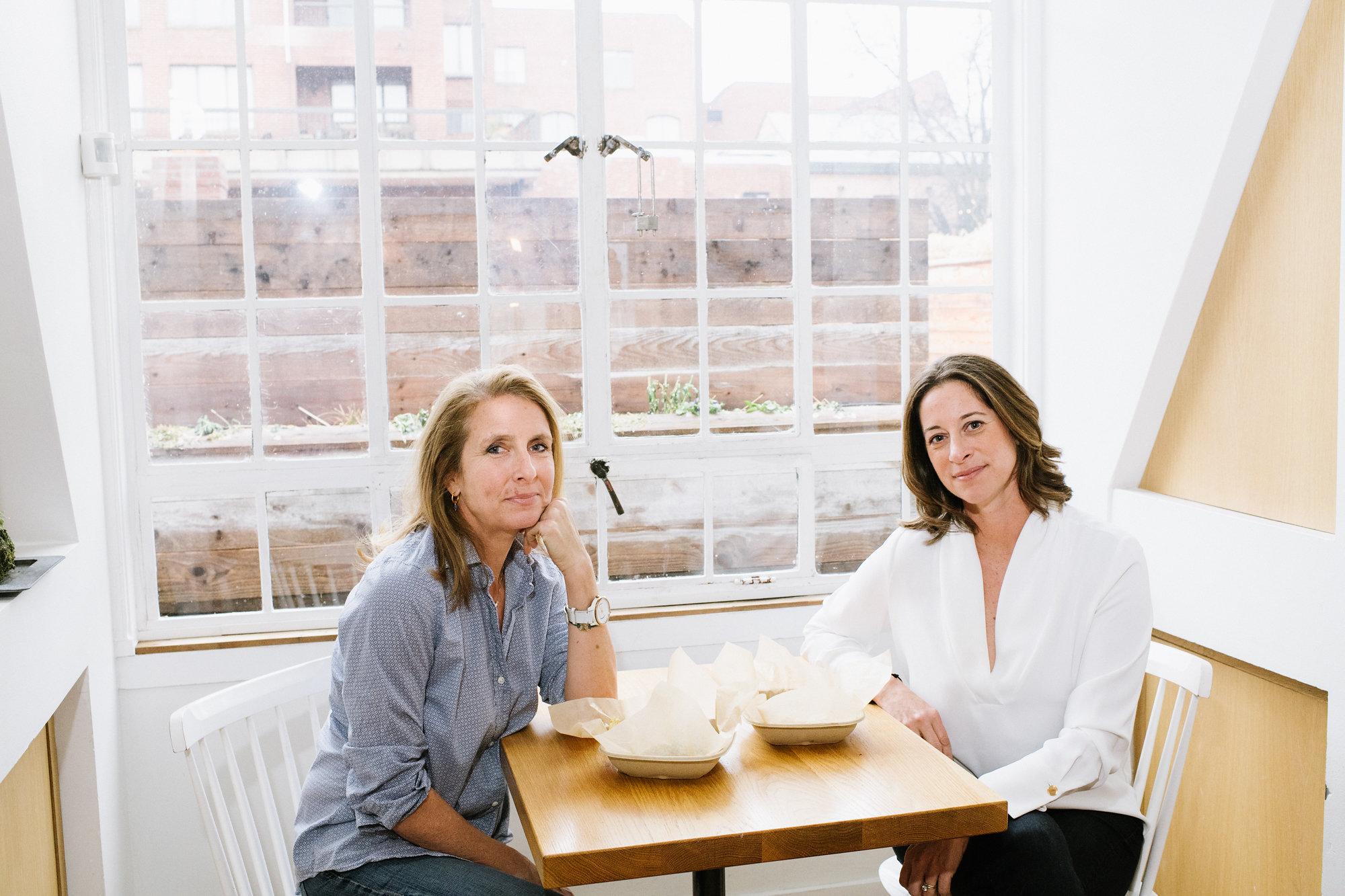‘We’re Not Trying to Hide That We’re Feeding You Vegetables’
Sometimes a carrot is just a carrot.
‘We combine vegetables, but not in a way where one isn’t recognizable,’ says Suzanne Simon, co-founder of Chaia, the cozy fast casual restaurant serving up vegetarian and vegan tacos on the corner of Grace Street. ‘The idea isn’t to take a vegetable and mash it up into a bunch of black beans. It’s about playing with their natural qualities and letting those shine in each individual taco. We’re not trying to say it’s like pork. No, it’s not. It’s a carrot.’
Suzanne and co-founder Bettina Stern met eight years ago over their shared love of food—both known as amazing cooks within their individual circles. At the time, Bettina was a magazine editor and Suzanne did environmental work for a consulting firm. As their friendship developed, they realized how many people were asking them for advice when shopping for and cooking vegetables.
‘This was when the farmers markets weren’t on every corner, but sustainability and eating locally were growing. We were cooking together and doing a lot to support that and teach others,’ Suzanne says.
As more freelance jobs poured in, the two batted around various food concepts. When Suzanne returned from a cooking class in Mexico, where she learned how to make hand-made corn tortillas, inspiration hit.
‘As we were looking for a way to feed people vegetables, and thinking about a good vehicle for that, we thought, who doesn’t like a taco?’ Bettina says. ‘There are some forefathers and foremothers ahead of us who were paving the way for this not to be such an eccentric idea.’
‘That was part of the brilliance of the idea, which we didn’t even know at the time,’ Suzanne adds. ‘It was putting an unfamiliar concept into something that is very known to people, that they already like. If you put vegetables into some strange bread that no one’s ever heard of, it’s even harder to sell. We loved the hand-pressing of the tortillas and how fresh they were. There was nothing on a fast-casual level dedicated solely to vegetables.’
Suzanne and Bettina purchased a few folding tables, camp stoves, and a 10’x10’ tent from Amazon, and started selling their taco concept at local farmers markets. The lines grew week after week, and customers stopped asking if they had any chicken.
As word spread, Bettina and Suzanne began catering events and receptions.
‘We were taking anything we could at the time, because we were working on a business plan and looking for investors, and we needed the money—and the space to test our product,’ Suzanne says. ‘Literally if someone called us and said can you do a wedding, we were like, ‘Sure we can!’’
‘We just drove around in our personal cars, and things were always spilling,’ Bettina says. ‘We knew how to cook but we had to learn how to cook in scale.’
A local broker soon discovered Chaia at a flea market on 14th Street, and brought Bettina and Suzanne in to present their idea to a Georgetown landlord.
‘They asked for our pro forma and financials,’ Suzanne recalls. ‘We walked out and were like, ‘We don’t have any of that.’ To a certain extent, you just fake it ‘til you make it. And then we walked into this location on Grace Street, and it had all the elements that felt right to us. We had to woo the landlord because we were not a proven concept yet. We were their first tenants in 80-something years.’
Now two years in to their brick-and-mortar location, Suzanne and Bettina say it’s been a steep learning curve, eased by an ‘incredibly generous community’ of entrepreneurs and restaurateurs who were willing to share their expertise along the way.
Of the hundreds of pounds of vegetables that Chaia processes each week, the majority are sourced from small farms in southern Pennsylvania. The pantry and cooking model are basic, with the same core ingredients used in different ways.
Their name reflects this notion of sustainability—Hebrew for ‘life.’ Originally Chaya, from the Mayan miracle plant, Suzanne and Bettina swapped the ‘y’ for an ‘i’ after discovering a California restaurant with the same moniker. Either iteration speaks to a greater purpose.
‘We’re not trying to tell people what to do, but this Earth is hanging in the balance right now,’ Bettina says. ‘I read a statistic that Americans eat nine ounces of meat protein a day, and in order for our Earth to start thriving again, we need to reduce it to two ounces per week. We’re doing as much as we can, and we have to do it. I think our customers are surprised when they leave Chaia and realize they didn’t miss the meat. People have to learn to like vegetables.’
For their part, Bettina and Suzanne have learned to like delegation. A year ago, they decided to step away from the day-to-day operations in order to grow the business.
‘It’s evolved from our employees knowing everything about us, to a lot of them no longer knowing who we are when we walk in,’ Suzanne says. ‘It’s like, ‘Why is this woman walking back here and getting herself a coffee?’’
No longer the only game in town, Chaia faces new health-conscious competition from neighboring Sweetgreen and South Block Juice Co. Still, there’s no slowing down. Suzanne and Bettina are opening a second location in DC, with plans to expand further in the near future. At the Georgetown flagship, they’re experimenting with specialty drinks—like a recent ginger beet root latte—and paying attention to small details, including dim lighting and tabletop candles at night.
‘We still have people within a block or two who have no clue we’re here,’ Bettina says. ‘It takes time to build a new audience, and it doesn’t just happen in six months. But an establishing reason for coming to Georgetown was feeling like this was a neighborhood that needed us. It was a beautiful place that needed some livelihood and newness.’
Suzanne agrees, and says the early years played an important role in getting to where they are today.
‘We got lucky. We feel really happy with this location and proud of this shop. It’s an investment into the neighborhood, and being part of that possible change.’
